
10 Essential Planning and Booking Travel Hacks
Table of Contents
Want to find the best travel deals for this destination? Chat with our travel hacking specialist!
Get Travel HacksCategory: planning-booking-travel-hacks
10 Essential Planning and Booking Travel Hacks
Planning is the foundation of any successful trip, yet it can often feel overwhelming. From finding the best flight deals to securing ideal accommodations, the pre-departure process involves numerous decisions that significantly impact your travel experience. This guide shares 10 proven planning and booking travel hacks that seasoned travelers use to secure better deals, prepare necessary documents, and set themselves up for an exceptional journey before even leaving home.
Key Takeaways
- Use strategic digital tools like incognito mode and VPNs to find lower prices on flights and accommodations
- Set fare alerts and learn the optimal booking windows to secure the best deals
- Consider flexible travel dates and alternative accommodations to maximize your budget
- Prepare essential documents and digital resources before departure for stress-free travel
- Organize travel information effectively to avoid confusion or lost confirmations
1. Use Incognito Mode for Flight Searches
Many travelers don't realize that travel websites track your search history using cookies, potentially showing higher prices when you repeatedly search for the same routes. When searching for flights online, always use your browser's incognito or private browsing mode to prevent this price manipulation.
In Chrome, you can open an incognito window by pressing Ctrl+Shift+N (or Command+Shift+N on Mac). For Firefox, use Ctrl+Shift+P. This simple step prevents travel sites from tracking your previous searches and potentially inflating prices based on your demonstrated interest in specific routes.
Additionally, clear your cookies and browsing history regularly when researching travel options. Some sophisticated pricing algorithms can still detect patterns even across different search sessions, so maintaining digital privacy during your research phase is crucial for finding the best deals.
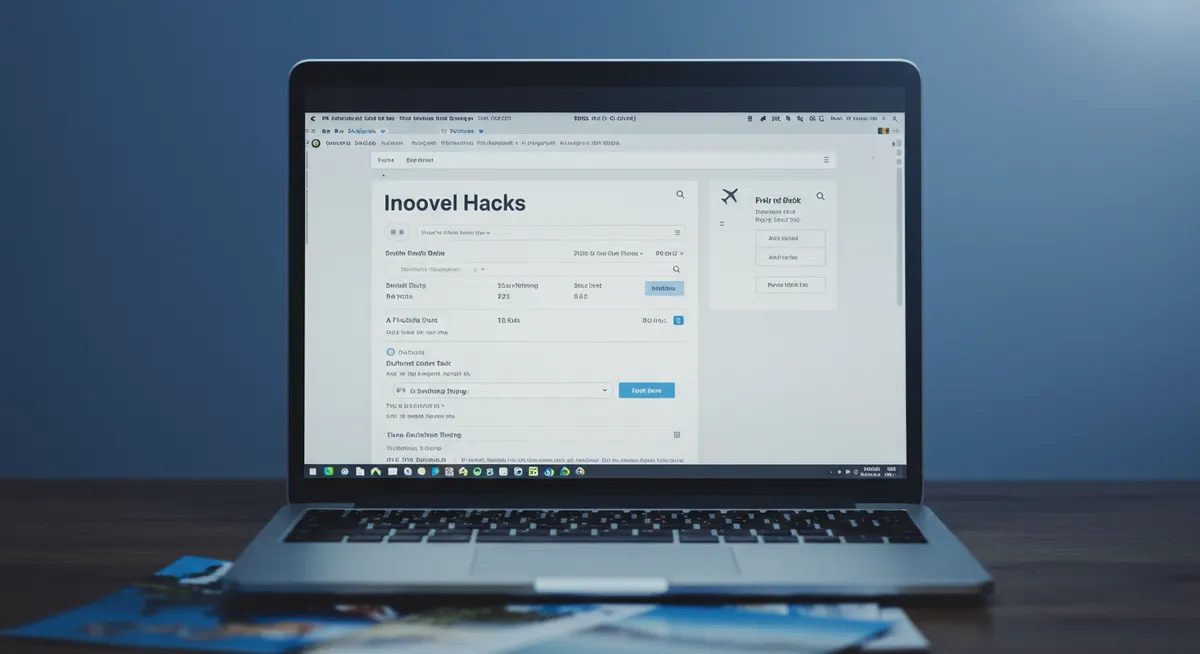
2. Set Fare Alerts for Price Drops
Flight prices fluctuate constantly based on complex algorithms considering demand, seasonality, and competitor pricing. Rather than spending hours manually checking for the best deals, leverage technology by setting up fare alerts on platforms like Google Flights, Skyscanner, Kayak, or Hopper.
These services will monitor your desired routes and notify you when prices drop or when they predict prices will increase soon. Some advanced tools can even advise whether you should book immediately or wait for potential better deals based on historical pricing data and current trends.
For maximum effectiveness, set up multiple fare alerts across different platforms, as each service uses slightly different algorithms and data sources. This creates a comprehensive monitoring system that ensures you won't miss a fleeting deal on your desired route.
Pro Tip: When setting fare alerts, include flexibility with your dates (±3 days) and nearby airports to capture even more potential deals that might work with slight adjustments to your plans.
3. Book Flights 6-8 Weeks in Advance
Finding the perfect timing for booking flights is something of a science. Research consistently shows that domestic flights typically offer the best prices when booked about 6 weeks (42 days) before departure, while international flights often have optimal prices around 8 weeks (56 days) before travel.
However, these windows can vary significantly based on destination, seasonality, and special events. For peak holiday periods like Christmas or summer vacation, booking 3-6 months in advance is often necessary to secure reasonable fares. Conversely, for off-season travel to less popular destinations, last-minute deals might emerge as airlines attempt to fill empty seats.
The most effective strategy combines this general timing knowledge with fare alerts mentioned above. Start monitoring prices early, understand the typical price range for your route, and be ready to book when you see a fare that's significantly lower than average, regardless of whether it perfectly matches the standard booking window.
4. Fly Mid-Week for Lower Fares
The day of the week you choose to fly can have a surprising impact on ticket prices. Tuesday and Wednesday are typically the cheapest days to fly, while Friday and Sunday tend to be the most expensive due to higher demand from weekend travelers and business travelers returning home.
This price difference isn't marginal—it can sometimes reach 20-40% between peak and off-peak days. If your schedule allows even minimal flexibility, shifting your departure or return by just a day or two can result in significant savings, especially for family travel where you're purchasing multiple tickets.
When searching for flights, always use the "flexible dates" option available on most booking platforms. This typically displays a grid or calendar view showing price variations across different days, making it easy to identify the most cost-effective travel dates for your journey.
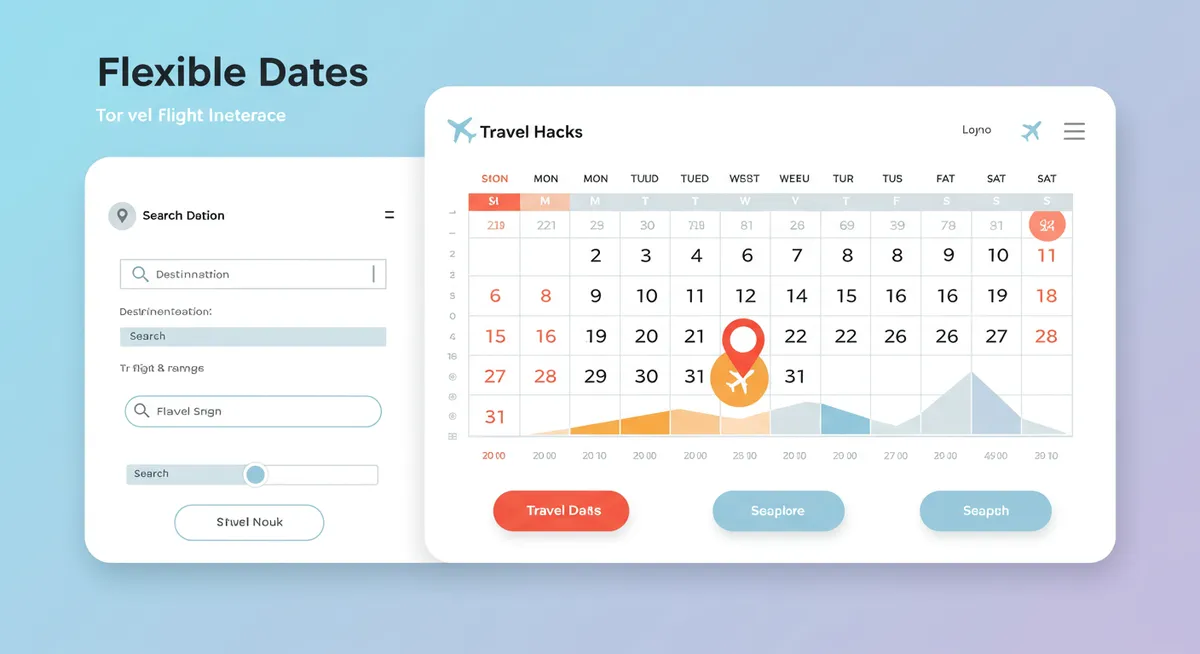
5. Book Accommodations with Free Cancellation
The accommodation landscape has evolved significantly, with many hotels and booking platforms now offering free cancellation options up until 24-48 hours before your stay. This flexibility is invaluable for travelers, as it allows you to secure accommodation early without committing irrevocably to your plans.
When booking, specifically filter for "free cancellation" options, even if they're slightly more expensive than non-refundable rates. This small premium buys you the freedom to continue monitoring prices and potentially rebook if you find a better deal closer to your travel date. It also provides peace of mind if your travel plans change due to unforeseen circumstances.
To maximize this strategy, set calendar reminders a few days before the cancellation deadline for each booking. This prompts you to review your options one final time, potentially finding last-minute deals that weren't available when you made your initial reservation.
Pro Tip: Create a dedicated email address exclusively for travel bookings to keep all your confirmations, itineraries, and cancellation policies organized in one place, away from your regular inbox clutter.
6. Consider Alternative Accommodations
While traditional hotels often provide reliable standards and amenities, alternative accommodation options can offer better value, more space, and unique experiences. Vacation rentals through platforms like Airbnb and VRBO often cost less per square foot than hotel rooms, especially for families or groups traveling together.
Hostels have evolved far beyond the stereotypical backpacker dormitories—many now offer private rooms with ensuite bathrooms at prices well below comparable hotels. Similarly, homestays provide authentic local experiences and often include valuable insider tips from hosts familiar with the destination.
When evaluating alternative accommodations, consider factors beyond just the nightly rate. Access to kitchen facilities can substantially reduce your food budget, while washing machines might allow you to pack lighter. Location advantages, such as proximity to public transportation or walkable neighborhoods, can also reduce your overall travel costs.
7. Use a VPN to Find Better Deals
Many travel booking platforms display different prices based on your geographical location. This price discrimination occurs because companies know what consumers in different markets are typically willing to pay. By using a Virtual Private Network (VPN), you can mask your actual location and appear to be browsing from different countries.
For example, booking a domestic flight within another country (such as a flight from Sydney to Melbourne in Australia) might show lower prices when your VPN is set to that country. Similarly, hotels sometimes offer better rates to customers browsing from regions other than where the property is located.
Experiment with connecting through different countries when researching flights, accommodations, and rental cars. While this approach requires additional effort, the potential savings can be substantial, sometimes reaching 10-30% depending on the service being booked.
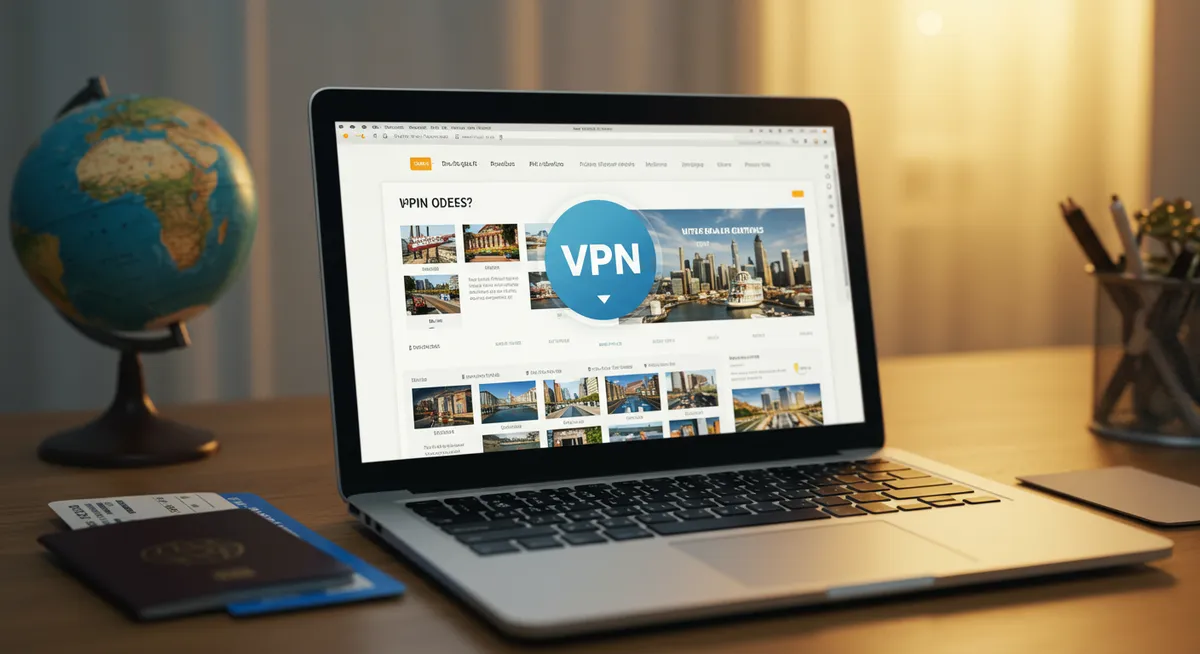
8. Download Essential Apps Before Departure
The pre-departure period is the optimal time to prepare your digital toolkit for travel. Identify and download essential apps while you still have reliable home Wi-Fi, rather than struggling with unfamiliar networks or expensive data roaming during your trip.
Essential travel apps typically include:
- Offline navigation apps like Google Maps (with downloadable offline areas), Maps.me, or Organic Maps
- Translation tools such as Google Translate with downloaded language packs for offline use
- Currency converters that work without internet connection
- Local transportation apps specific to your destination (subway maps, ride-sharing services, or bike-rental systems)
- Accommodation and booking apps where you've stored your reservations
Take time to familiarize yourself with these tools before your trip. Learn how to use offline maps, practice with the translation app, and ensure that all your bookings are properly synced and accessible offline within their respective apps.
9. Notify Your Bank and Credit Card Companies
Few travel situations are more stressful than having your cards declined due to suspected fraud when you're far from home. Many financial institutions automatically flag foreign transactions as potentially fraudulent, especially if they're unusual for your typical spending patterns.
Before traveling, notify your bank and credit card companies about your upcoming trip. Most institutions allow you to set travel notices through their mobile apps or online banking portals. Specify all the countries you'll be visiting (including transit countries for layovers) and the exact dates of your trip.
While setting travel notices, it's also an ideal time to:
- Confirm your daily withdrawal limits for ATMs
- Verify which of your cards charge foreign transaction fees (and which don't)
- Note down international customer service numbers for your financial institutions
- Consider obtaining a backup credit card from a different network (e.g., having both Visa and Mastercard)
Pro Tip: Take a photo of the front and back of your payment cards and store them securely in an encrypted cloud service. If your cards are lost or stolen, you'll have easy access to card numbers and customer service contacts.
10. Make Digital and Physical Copies of Important Documents
Document preparation is a critical yet often overlooked aspect of travel planning. Before departure, create both digital and physical copies of essential travel documents to ensure you're prepared for various contingencies.
Essential documents to duplicate include:
- Passport and visa pages
- Driver's license (especially if you'll be renting vehicles)
- Travel insurance policy with emergency contact numbers
- Flight itineraries and boarding passes
- Hotel and accommodation confirmations
- Prescriptions for any medications you're carrying
Store digital copies in both an encrypted cloud service (like Google Drive or Dropbox) and as offline files on your phone. Email copies to yourself and to a trusted contact not traveling with you. Additionally, keep physical photocopies separate from the originals in your luggage.
This redundancy ensures that even in worst-case scenarios—lost luggage, stolen wallet, device failure—you'll always have access to critical information that can help you continue your journey or obtain emergency assistance.
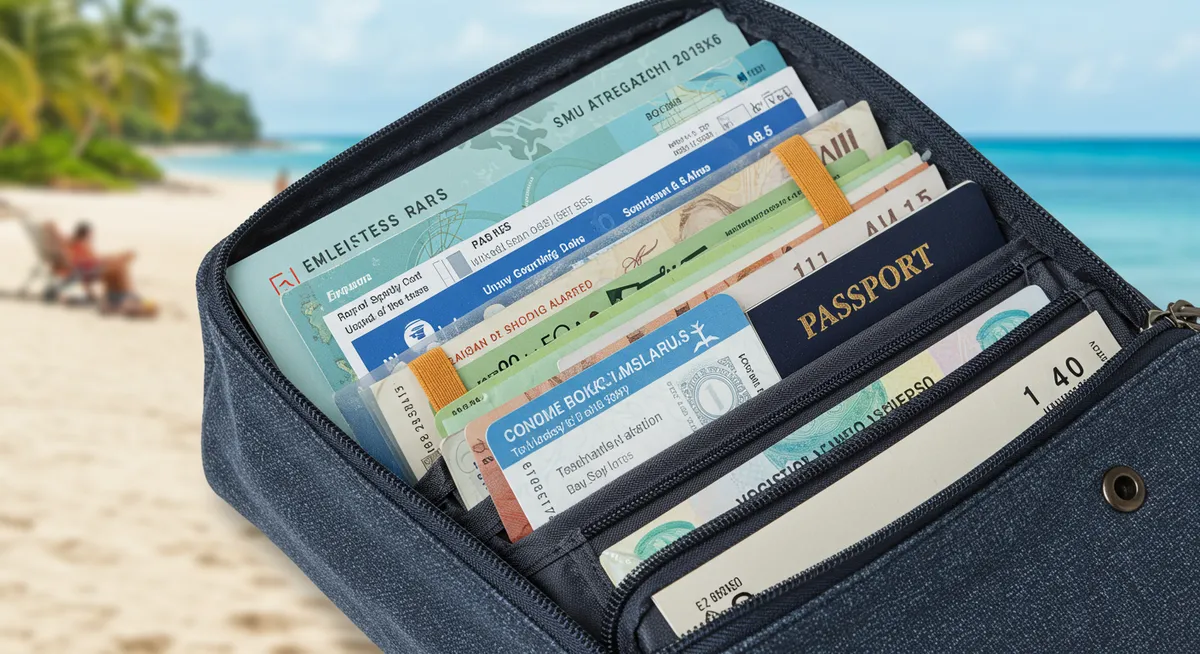
Frequently Asked Questions
How far in advance should I book flights for the best deals?
Generally, book domestic flights about 6 weeks in advance and international flights 8 weeks ahead. However, adjust this timeframe for peak seasons (book earlier) or off-peak travel (can sometimes find last-minute deals).
Does incognito mode really help find cheaper flights?
Yes, it can help prevent price increases based on your repeated searches for the same routes. While not guaranteed to always find lower prices, it eliminates one potential factor that could drive prices up.
What's the best way to organize all my travel bookings?
Use a dedicated travel email address for all booking confirmations, and consider a trip organizing app like TripIt that consolidates your reservations in one place. Additionally, save offline copies of important confirmations on your phone.
Is it worth paying extra for flexible booking options?
In most cases, yes. The slightly higher cost buys you peace of mind and flexibility if your plans change. It also allows you to take advantage of better deals that might emerge closer to your travel date.
How do I know if I need a visa for my destination?
Check the official government travel website of your destination country, or use reliable visa information services like IATA's Travel Centre. Start this research early, as some visa applications require significant processing time.
Mastering these planning and booking travel hacks will transform your pre-trip experience from stressful to strategic. By implementing these techniques, you'll not only secure better deals and prepare more thoroughly but also build confidence in your travel planning abilities. For more comprehensive travel advice, check out our complete guide to 50 essential travel hacks that covers everything from efficient packing techniques to navigating foreign destinations like a local. You might also be interested in our guides on how to save money while traveling and staying connected on the go.
Related Travel Resources
Elevate your travel planning with these complementary strategies:
Essential Booking Strategies
- 🔒 24-Hour Flight Price Lock Strategy - Lock in flight prices risk-free
- 🤖 AI Flight Price Prediction Tool - Book at optimal times
- 🏨 Hotel Room Upgrade Email Template - Enhance your accommodation
- 🌎 Hidden Destination Alternative Finder - Discover better value destinations
Related Travel Categories
- ✈️ Flight Hacks - Master airfare booking strategies
- 🏨 Accommodation Hacks - Find better places to stay
- 💰 Money-Saving Hacks - Stretch your travel budget further
- 🌟 Top-Rated Travel Strategies - Our most powerful travel techniques
For a complete framework of travel optimization strategies, visit our Ultimate Travel Hacks Guide.
Related Posts
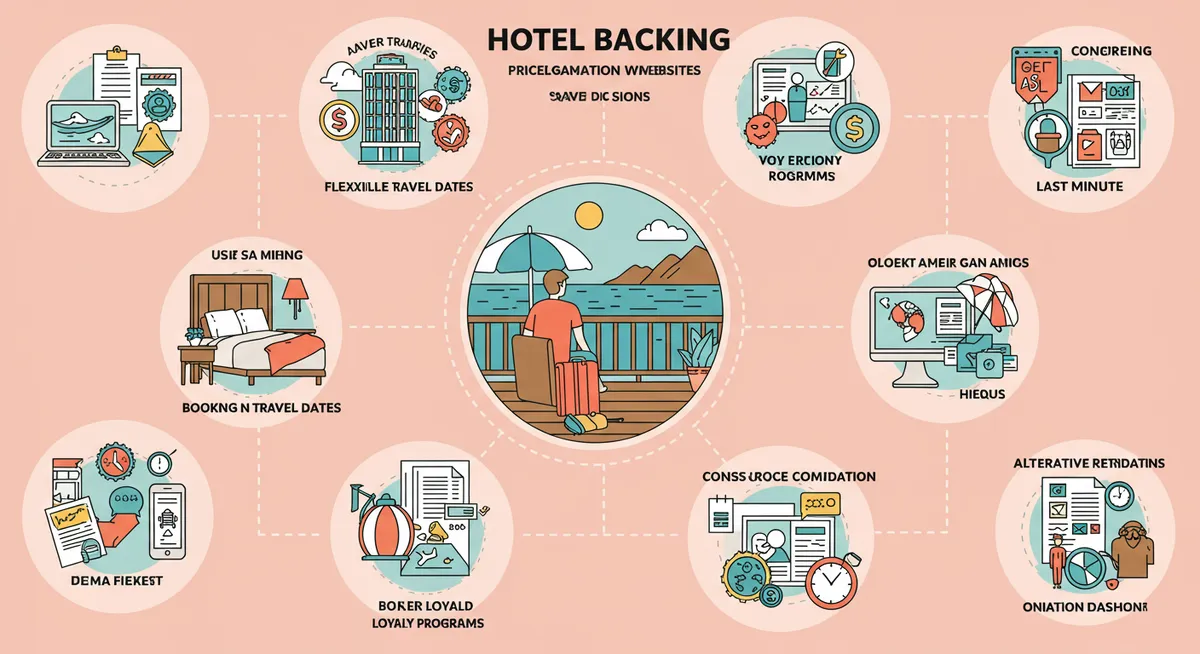
10 Clever Accommodation Hacks for Better Stays at Lower Prices
Discover 10 expert accommodation hacks that will help you find better lodging options, secure room upgrades, and save significant money on hotels and alternative stays.
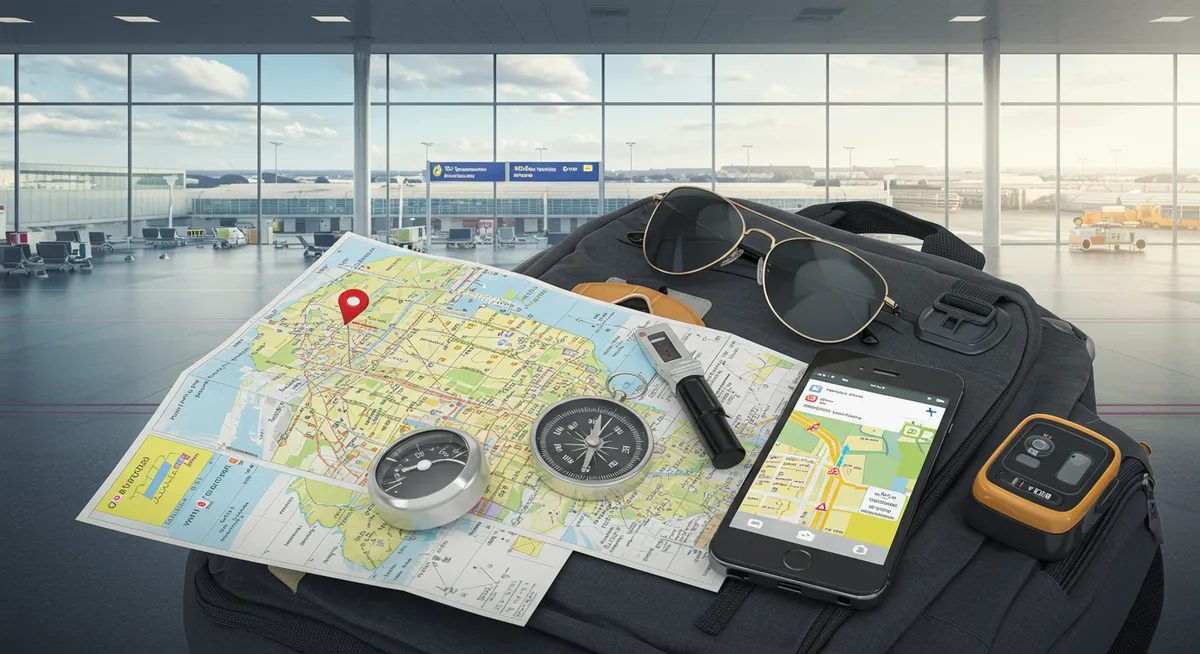
10 Genius Airport Hacks for Smoother, Stress-Free Travel
Master the art of airport navigation with these 10 clever hacks that will help you breeze through security, avoid delays, and make your airport experience more comfortable and efficient.

10 Essential Flight Hacks to Save Money and Travel Better
Discover 10 powerful flight hacks that will help you find cheaper airfares, get upgrades, and make your air travel experience more comfortable and affordable.